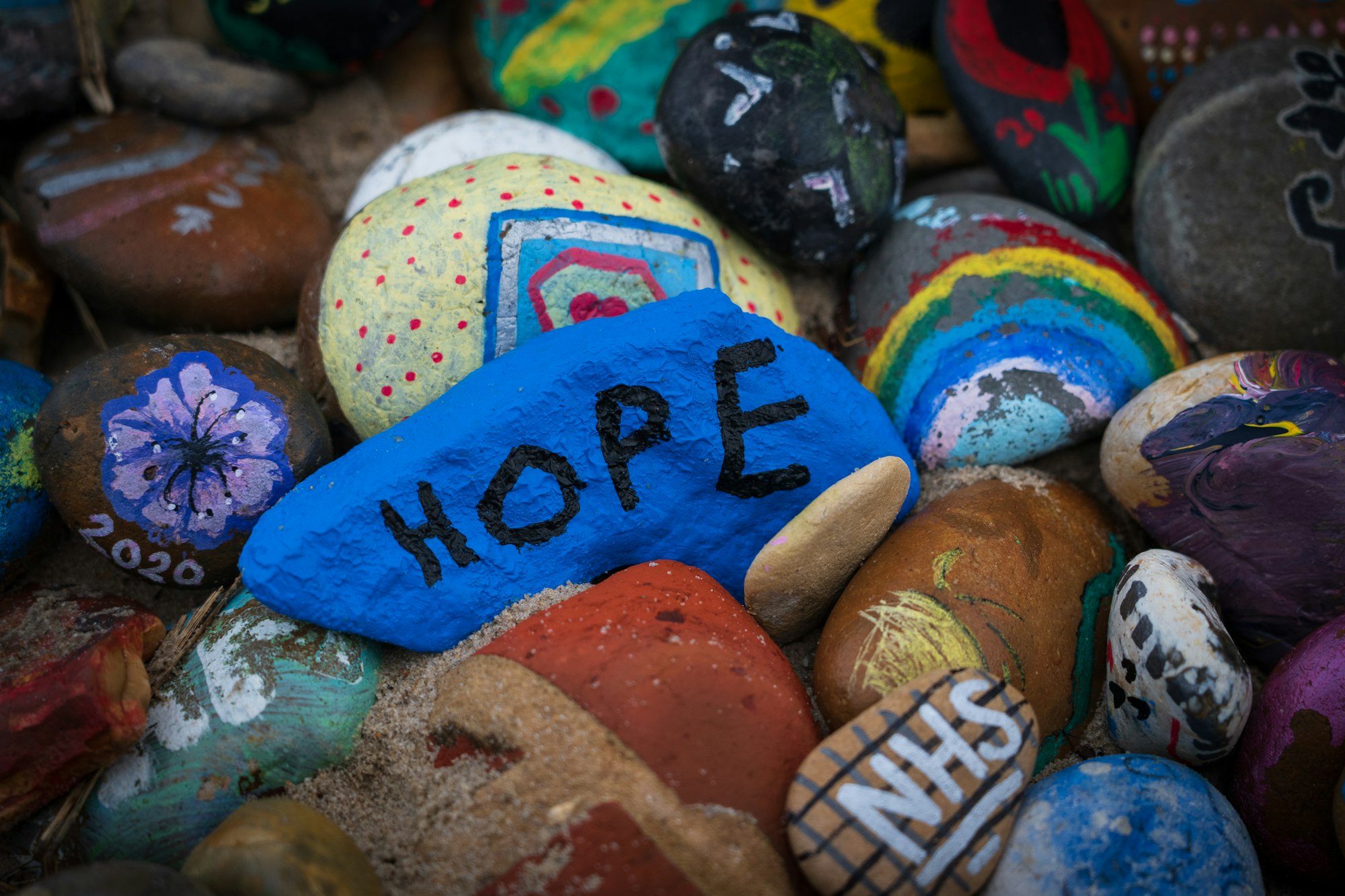Rediscovering Advent's Gift of Hope

Advent, Week One
There's something about childhood memories of Christmas that stays with us. I remember how December 25th seemed like the center of the universe – all anticipation building toward that single morning of wonder. But once the gifts were unwrapped and the paper cleared away, something shifted. The magic seemed to vanish as quickly as it had come, leaving us waiting another whole year for its return.
It wasn't until I moved to the Philippines that I discovered a completely different rhythm to the season. There, Christmas explodes onto the scene on September 1st, with decorations and music filling every corner of life through what locals affectionately call the "BER months."
Later, living in Indonesia, I witnessed something even more remarkable – in a predominantly Muslim country, Christian churches would hold massive three-hour services, with military and police standing guard to protect worshippers. People would celebrate throughout December and January, attending services at their own churches plus those of countless friends and family who invited them.
These experiences made me reflect deeply on how we've come to celebrate Christmas in American culture. A couple of years ago, when Christmas fell on a Sunday, I was struck by the debate in some churches about whether to hold services on Christmas morning. What a profound shift – that we would question gathering on the very day that marks the beginning of our story as the church.
This cultural current has led many churches to rediscover older Christian traditions that help us slow down and refocus during this sacred season. Enter Advent – a word that simply means "expectation" but carries so much more meaning when we honestly lean into its invitation.
A prison cell, in which one waits, hopes - and is completely dependent on the door of freedom being opened from the outside, is not a bad picture of Advent.
--Dietrich Bonhoeffer
In our rushed culture that demands constant productivity and acquisition, Advent calls us to be still, to create space for what matters most.
The beauty of Advent lies in its honest recognition of where we find ourselves. In the imagination of this season, Christ is coming, but he isn't here yet. The world still waits in darkness, hoping for the dawn. We acknowledge the brokenness around us – the wars, the despair, the injustice – not to wallow in darkness, but to prepare our hearts for the coming light.
This season invites us to resist the pressure to do more, spend more, and get more. Instead, we wait, hope, pray, and reflect on God's promises. It's a counter-cultural act in our fast-paced world, one that reminds us that transformation often happens in the quiet spaces of waiting.
The ancient words of Scripture hold more than meets the eye. Like intricate tapestries viewed from the back, many beautiful patterns become hidden when biblical texts are translated into English. The original Hebrew of Psalm 25, for instance, was crafted as an acrostic poem - each verse beginning with successive letters of the alphabet. This artistic structure, designed to help people remember and share these sacred words, vanishes silently when moved into our modern languages.
It reminds me of trying to explain a beloved family joke in another language - something essential often gets lost in translation. The biblical writers wove elaborate literary devices into their work: memory aids, vivid word pictures, and layers of meaning that blur or fade when transported across linguistic boundaries.
This presents one of our greatest challenges in understanding Scripture today. None of us can fully step into the world where these texts were born. We're like travelers looking through a window into a distant landscape - we can see the broad outlines, but some subtle details remain just beyond our grasp.
Yet this limitation isn't cause for despair. Instead, it fills me with profound gratitude for the biblical scholars who dedicate their lives to bridging these ancient and modern worlds. They help us understand not just the what of Scripture, but the how and why - illuminating the context, purpose, and deeper meanings that might otherwise remain hidden. Through their work, paired with our prayerful reading and the Holy Spirit's guidance, these ancient words continue to speak with fresh clarity to each new generation.
As we pause today, let's take a look at Psalm 25:
In you, Lord my God, I put my trust.
I trust in you; do not let me be put to shame,
nor let my enemies triumph over me.
No one who hopes in you will ever be put to shame
but shame will come on those who are treacherous without cause.
It's tempting, isn't it, to use King David's story as a kind of spiritual get-out-of-jail-free card? I've heard it in church hallways and leadership meetings: "Well, if God could use David after everything he did..." The suggestion hangs in the air like an unfinished prayer, hoping to excuse our own missteps or those of our leaders.
But this misses something profound about David's story. What made him extraordinary wasn't his failures - and there were many - but his response to them. When confronted with his sins, David didn't offer explanations or seek loopholes. Instead, he fell to his knees in complete surrender.
I'm reminded of a broken vase that's been carefully pieced back together. The cracks don't disappear, but they tell a story of restoration. David's heart was like that - broken by his own actions, yet made beautiful in its brokenness because it was offered wholly to God. "Without You, I am nothing," his psalms seem to whisper across the centuries.
This is what it means to be "a person after God's own heart" - not perfection, but profound surrender. In David's tearful confessions and honest prayers, we catch a glimpse of something even greater to come: the perfect surrender of Jesus, who would show us what it means to fully trust God's heart.
Perhaps that's why David's story still speaks so powerfully to us today. It's not an excuse for misbehavior, but rather a mirror showing us what genuine repentance and trust look like. It's an invitation to stop defending our brokenness and instead offer it to God as the beginning of transformation.
The ancient words of Psalm 25 speak perfectly to this season of expectation: "Show me your ways, Lord, teach me your paths... my hope is in you all day long." These words, originally written as an acrostic poem to help people remember and recite them, remind us that hope isn't about blind optimism. Rather, it's grounded in who God is – past, present, and future.
The psalm speaks of "prosperity," but not in the way we might think. It's not about financial success or material abundance. Instead, it points to something deeper – the kind of richness that makes someone respond to "How are you?" with "Better than I deserve." It speaks of "fearing" God, not with terror or shame, but with reverent awe that leads to surrender and transformation.
As we enter this Advent season, we're invited to rediscover the gift of waiting with hope. It means acknowledging that while Christmas celebrations will look different across cultures and contexts, the core truth remains: we are waiting for something – someone – who will make all things new.
So this year, I invite you to resist the holiday frenzy.
Take time to be still.
Be present with the people you love.
Practice hospitality with your neighbors and friends.
Read ancient words of hope.
Remember that you're part of a story much bigger than yourself – a story of a God who enters our darkness with light, our chaos with peace, our despair with hope.
Remember this Advent prayer:
"God of hope, as we begin this journey, fill us with joyful expectation. Like those who awaited the Messiah's first coming, be with us in our waiting. Strengthen our faith, deepen our hope, and prepare our hearts for what's to come."
After all, sometimes the best gift isn't found in the frantic rush toward December 25th but in the quiet moments of waiting, hoping, and being changed along the way.









Member discussion